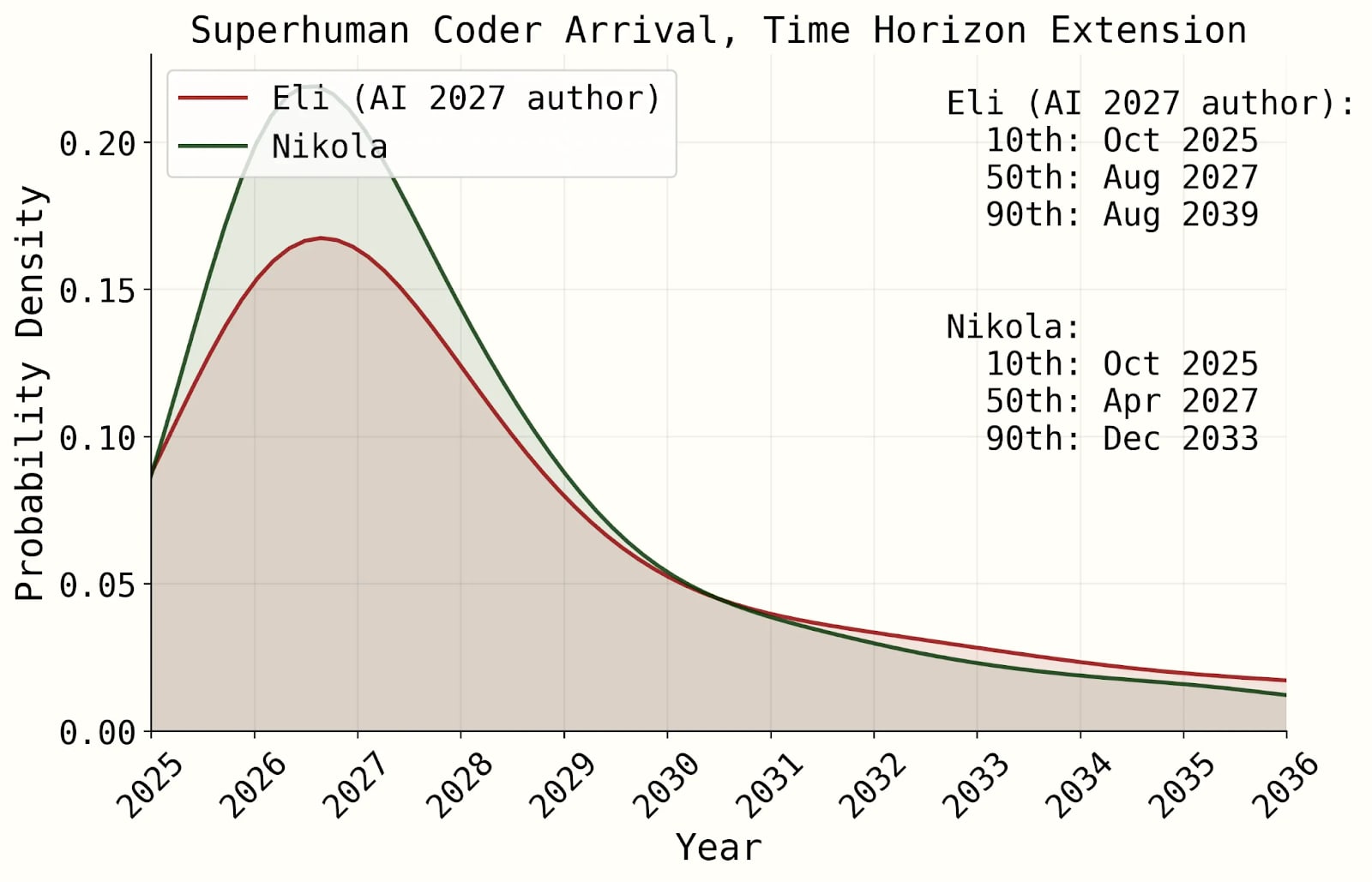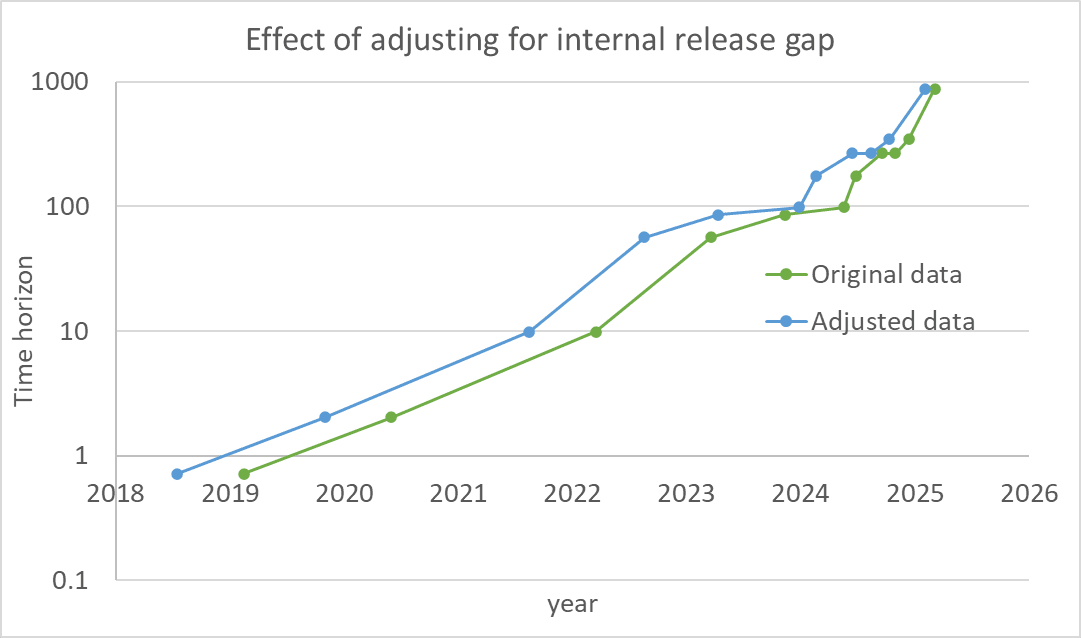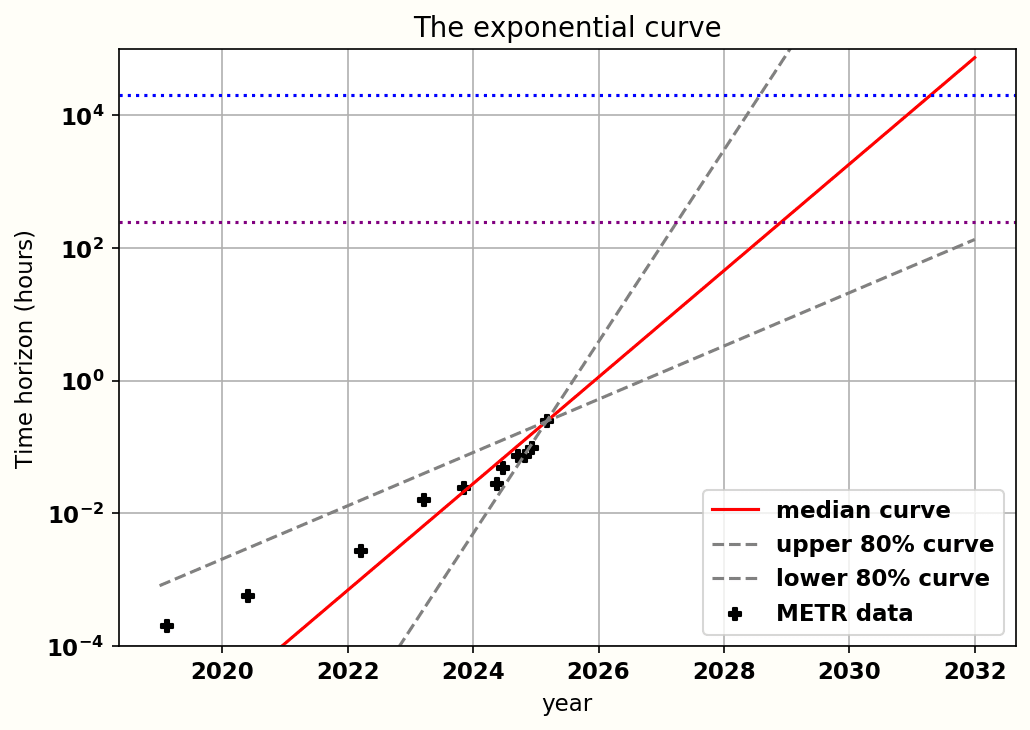
 LessWrong (Curated & Popular)
LessWrong (Curated & Popular) “A deep critique of AI 2027’s bad timeline models” by titotal
Jul 9, 2025
Dive into a thorough critique of AI 2027's ambitious predictions about superintelligent AI arriving in just a few years. The conversation reveals significant flaws in forecasting models, questioning their assumptions and data validity. It tackles the complexities of time horizons and addresses potential biases that might skew future projections. Listeners will gain insights into the nuances of AI development and the implications of inaccurate modeling in tech forecasts.
AI Snips
Chapters
Transcript
Episode notes
Super-Exponential Curve Flaws
- The AI 2027 model's super-exponential curve mathematically diverges, producing nonsensical infinite and complex values shortly after 2030.
- This implies the model inherently predicts rapid acceleration to superhuman coding, independent of initial conditions.
Weak Justifications for Model Choice
- The arguments supporting super-exponential progress lack solid conceptual basis or are contradictory.
- Key reasons given fail to justify why the chosen curve is preferred over countless other super-exponential options.
Mismatch in R&D Speed-Up Estimates
- The model's intermediate speed-up mechanism incorrectly suggests AI R&D acceleration recently was greater than actually estimated by its own authors.
- This error implies a mismatch between model dynamics and stated beliefs about current AI progress.




